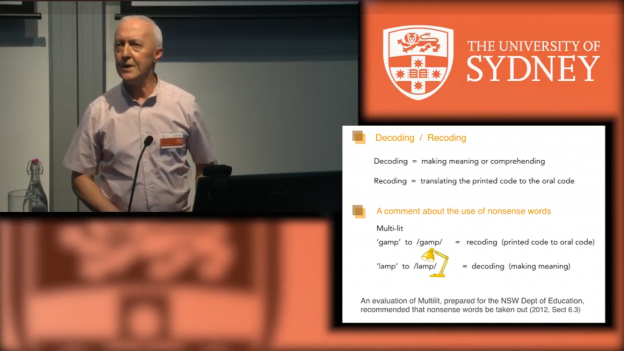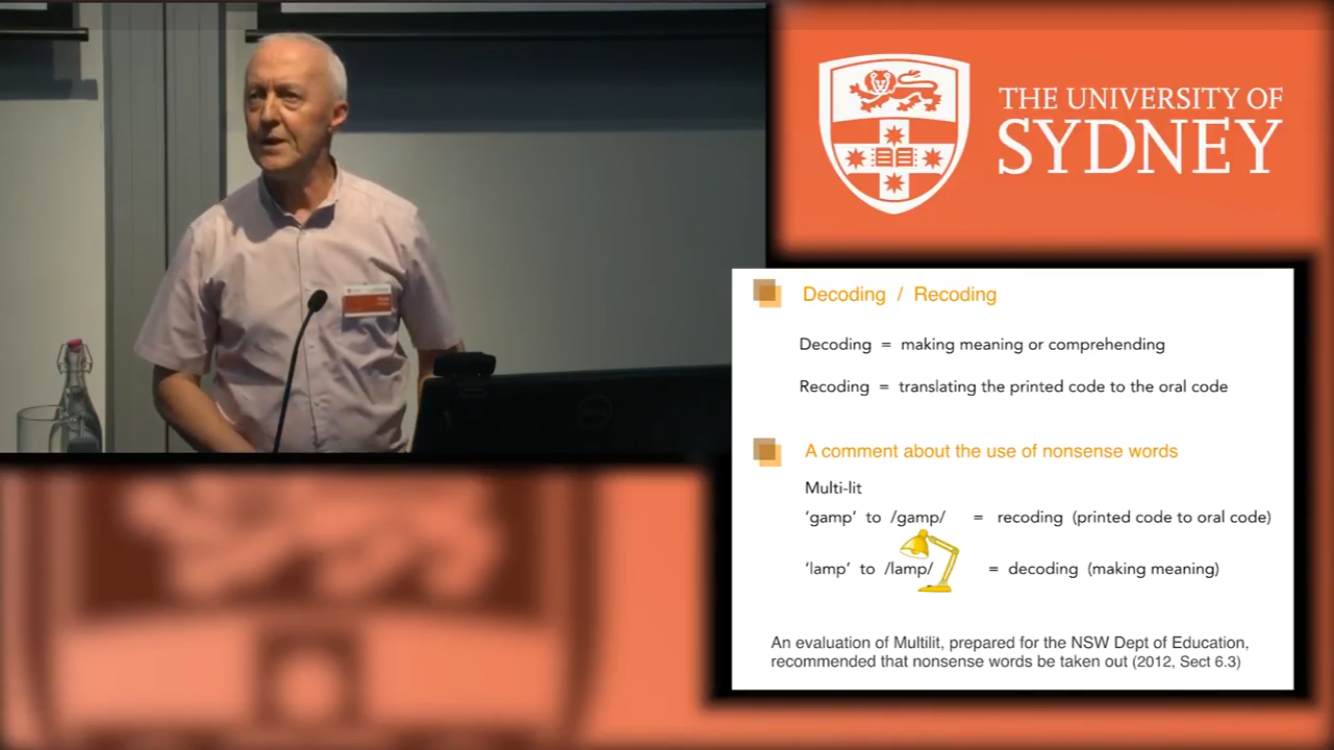The definition of decoding (or “glamping with David Hornsby”)
11 Replies
Last May, educational consultant David Hornsby spoke at Sydney University about “The Role of Phonics in Learning to be Literate”, and his talk was recorded and put on YouTube.
I recently heard from the Developmental Disorders of Language and Literacy Network that the video was being shared widely by teachers on social media. So I took a look.
Mr Hornsby begins by explaining that his definition of decoding is “making meaning or comprehending”. Here’s his slide saying this, in case you think I made it up:

In the solidly-evidence-based Simple View of Reading, the term “decoding” usually means word identification, whether this is achieved by sounding out words, or instantly and without conscious effort, once a familiar word’s spelling, pronunciation and meaning are bonded in memory (via orthographic mapping, or in dual route models, via the lexical route).
Sometimes researchers use “decoding” to mean only sounding out words, but in both its broader and narrower definitions in the reading research, decoding’s key focus is linking print to speech.
Decoding is not about semantics, syntax or context, which fall on the Language Comprehension side of the Simple View of Reading equation (Decoding multiplied by Language Comprehension equals Reading Comprehension). (more…)


